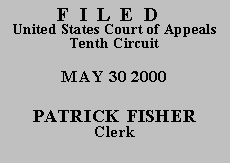

| DAVID Y. MERRITT, | No. 00-1027
(D.C. No. 99-Z-2325) (D. Colo.) |
Merritt raises a number of issues in his brief on appeal. Merritt first contends that he has, in fact, exhausted his administrative remedies. Second, Merritt asserts that the district court erred in raising sua sponte the question of exhaustion because exhaustion is an affirmative defense rather than a jurisdictional bar. Finally, Merritt argues that even if he has failed to exhaust, the merits of his claims are properly before the court because a number of exceptions to the exhaustion requirement are applicable under the circumstances of this case.
As an initial matter, this court concludes that Merritt's argument complaining that the district court sua sponte raised the issue of exhaustion is without merit. This court has noted that "where a doctrine implicates [nonjurisdictional] values that may transcend the concerns of the parties to an action, it is not inappropriate for the court, on its own motion, to invoke the doctrine." Hardiman v. Reynolds, 971 F.2d 500, 502-03 (10th Cir. 1992) (citation and quotations omitted). Exhaustion of administrative remedies prior to filing an action pursuant to § 2241 is such a doctrine. This court has emphasized that judicial intervention pursuant to § 2241 is usually "deferred until administrative remedies have been exhausted" because "the agency is in a superior position to investigate the facts." Williams v. O'Brien, 792 F.2d 986, 987 (10th Cir. 1986). Moreover, our view is consistent with Holman v. Booker, No. 98-3124, 1998 WL 864018, at **4 (10th Cir. Dec. 14, 1998) (unpublished), which addressed and rejected precisely the issue raised by Merritt. See also Hardiman, 971 F.2d at 903 (concluding that a district court may properly raise sua sponte issues of state procedural bar in habeas corpus actions brought pursuant to 28 U.S.C. § 2254). We therefore conclude that the district court did not err in raising the exhaustion issue sua sponte and that the question of exhaustion was properly considered by that court.
Turning to Merritt's remaining claims, we find that there is evidence to suggest that Merritt has, in fact, exhausted his administrative remedies. Merritt has provided documentation to show that he renewed his June 1999 administrative appeal by letter dated October 15, 1999. (See Aplt. Br. Exh. B.) Merritt further asserts that the Probation Commission has not acted on this appeal. Based on these allegations, we are concerned that the district court's decision to dismiss Merritt's application sua sponte for the failure to exhaust his administrative remedies may have been premature. We therefore remand this case to the district court with the direction that the court accomplish service on the Parole Commission and order the Parole Commission to file a responsive brief so that the district court may fully consider Merritt's claim that he has exhausted his administrative remedies as well as any further issues as may be appropriate.
Finally, Merritt has filed a Motion for Summary Reversal and a Motion to Designate Action on Emergency Docket with this court. In light of our decision to remand this case to the district court for further consideration of the exhaustion issue, we deny both motions.
ENTERED FOR THE COURT
David M. Ebel
Circuit Judge
*.After examining appellant's brief and the appellate record, this panel has determined unanimously that oral argument would not materially assist the determination of this appeal. See Fed. R. App. P. 34(a)(2) and 10th Cir. R. 34.1(G). The case is therefore ordered submitted without oral argument. This Order and Judgment is not binding precedent, except under the doctrines of law of the case, res judicata, and collateral estoppel. The court generally disfavors the citation of orders and judgments; nevertheless, an order and judgment may be cited under the terms and conditions of 10th Cir. R. 36.3.